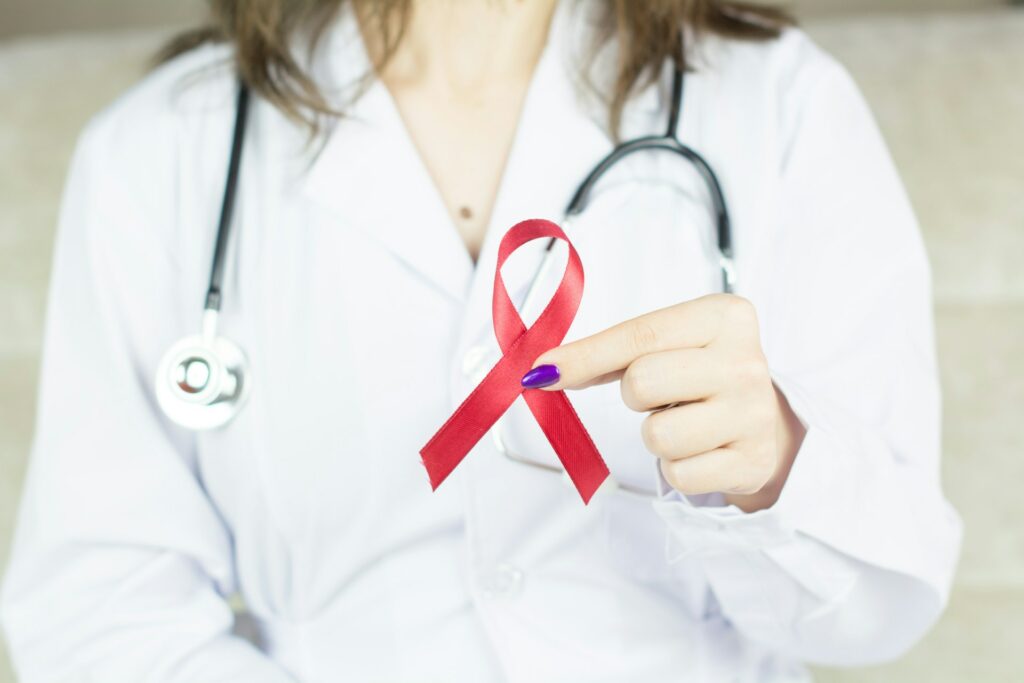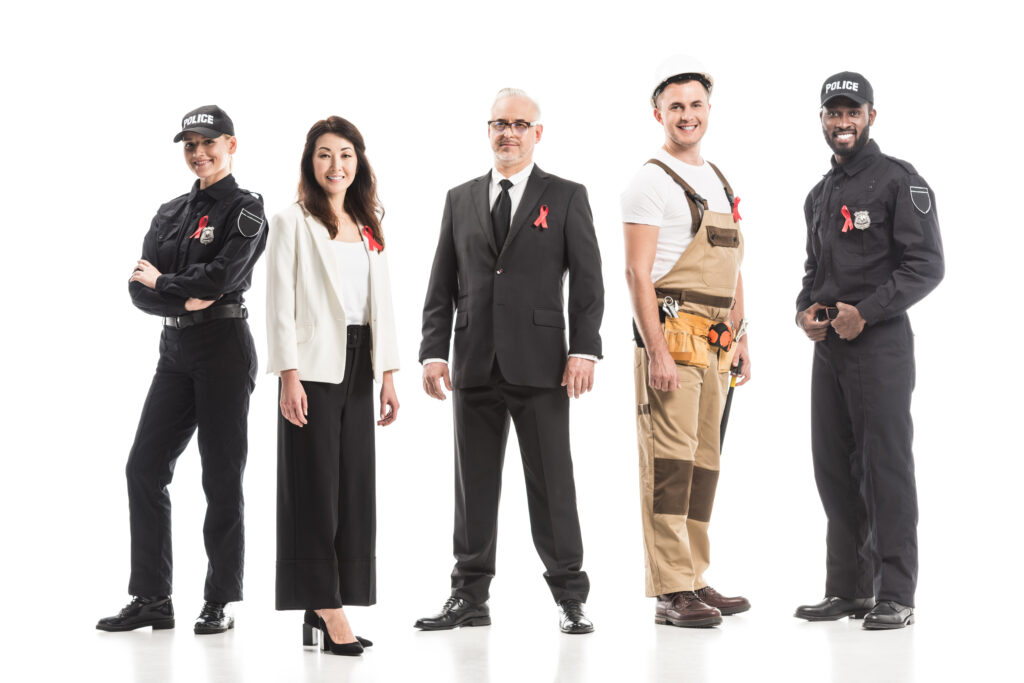
The AIDS disease
Background: HIV, the virus, causes AIDS, the active stage of the disease. Let's start with a bit of history. In 1981, several cases of "opportunistic" pathologies in young homosexual men were reported by clinicians on the American West Coast.
Little by little, scientists around the world discovered this virus, which manifests itself as a generalized immune deficiency in all those affected. This became known as an epidemic, as all continents were affected. Three modes of transmission were gradually discovered:
- Sexual contact through unprotected vaginal, oral or anal intercourse
- The blood route, when blood is exchanged
- From mother to child during pregnancy, childbirth and breastfeeding.
Thirty years later, no fewer than 7.7 million people are living with the virus, including 1.7 million children. In France, 173,000 people are thought to be living with HIV, not counting those who don't know it. Indeed, despite the progress made in raising public awareness (as demonstrated by this Santé Publique France campaign launched in 2020 and broadcast again this year), "screening remains the weakest link in the HIV cascade in France", as the same organization points out. Now more than ever, it seems crucial to drastically reduce the number of HIV-positive people who are unaware of their status, and to apply screening frequency recommendations:
- To start treatment as soon as possible (to reduce the effects of the virus on your health, increase your life expectancy and improve your quality of life, reduce the amount of HIV in your blood until it is undetectable , thus making the virus untransmissible).
- To avoid endangering others: your children during pregnancy, for example, or your partner(s).
- To be properly accompanied by the medical profession, but also to benefit from the support and advice of third parties, particularly associations.
The symptoms
How is the virus detected? HIV infection evolves in three phases:
- Primary infection. In around half of all cases, clinical signs may appear within a month of infection, most often suggestive of a flu-like syndrome (fever, vomiting, headaches, stomach aches, muscle pains, etc.).
- The chronic phase. This phase has no specific symptoms. In effect, the HIV carrier feels no symptoms at all, while the virus continues to develop in his or her body, over a period of several years.
- AIDS. In the absence of diagnosis through HIV serology and treatment, the disease reaches the AIDS stage. And it's after an asymptomatic phase, which can be long, that symptoms testifying to the weakening of the immune system appear (persistent fever, night sweats, weight loss, skin infections, etc.).

The treatment
Thanks to medical science, it is now possible to live with HIV. Treatment of HIV infection is based on a combination of several antiretroviral drugs, usually three(triple therapy).
However, although there have been two rare cases of cures worldwide, these prevent the virus from multiplying in the body, but do not allow it to be eliminated, and thus cured.
How can you mobilize your company?
Despite the progress made with all these treatments, both individually and collectively, companies are still finding it hard to get to grips with the subject of HIV.
How can we talk about it? How can we combat prejudice against certain employees? What are the best practices? How can we combat this disease in the workplace, quite simply?
HIV in the workplace
What is daily life like for a person living with HIV in the workplace? An HIV-positive person on treatment is an employee like any other... or almost.
An invisible disease, it weakens the immune system, leaving us vulnerable and requiring strict daily treatment.
In concrete terms, this means going to the pharmacy every 30 days, having a complete check-up every three or six months, and the follow-up appointments needed to optimize treatment. Some people are therefore forced to take a day off work to avoid the risk of arbitration by managers unaware of their situation.
Raising company awareness
There is still a great deal of prejudice against HIV, particularly in the business world. Yet the role of a company is twofold: to inform and to establish zero tolerance in the face of discrimination.
On this subject, Camille Spire, President of AIDES, the leading association in the fight against AIDS and hepatitis in France and Europe, comments: "I've noticed a strong trend towards more and more in-company training.
However, a simple two-hour exposure to HIV is by no means enough.
We need to work on creating a caring climate and an inclusive corporate culture.

How to get involved
Today, 80% of French people say they feel well informed about HIV in general.
Yet the French seem to know little about HIV/AIDS prevention treatments.
In fact, 60% of them believe that there is currently no treatment to prevent infection, and 47% believe that there is no treatment to prevent transmission of the virus.
So it's crucial for companies to inform, engage and mobilize their employees in a real and lasting way. We've listed a few tips below:
- Via associations. Many companies are involved with Sidaction or the AIDES association, for example. There are many ways in which you can help. Your company or foundation can contribute to the fight against HIV/AIDS at different levels ofengagement : financial, human, political... The forms of support are just as varied and numerous: sponsorship, product-sharing, skills sponsorship, in-kind donations, temporary provision of equipment...
- By setting up programs. For example, Sida-Entreprises, a coalition launched in 2003, brings together some one hundred French companies operating in Africa.
- It is chaired by Alain Viry, CEO of CFAO (PPR Group). The role of these groups is to disseminate consistent anti-AIDS programs within companies, by sharing the "best practices" of the most advanced groups.
- Via Challenges...
To fight back in a sustainable way, take advantage of the benefits of gamification to get your message across and encourage people to take action! The objective? Raise your teams' awareness of the fight against HIV through challenges, quizzes, surveys and turnkey content created by La Rédac' OuiLive.
Why not get your employees involved in a connected challenge to raise awareness and take action? Get in touch with us.